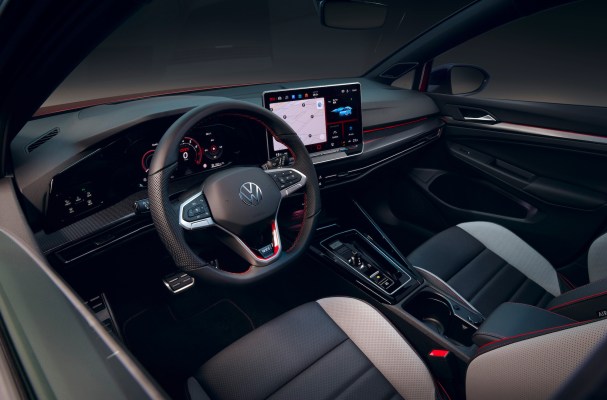Volkswagen is getting into the ChatGPT game. The German automaker announced Monday at CES 2024 in Las Vegas plans to add an AI-powered chatbot into all Volkswagen models equipped with its IDA voice assistant.
Why? For drivers who want an AI-based chatbot to read researched content out loud to them, of course. TechCrunch was on hand at CES 2024 to try out the ChatGPT feature and found that it could still be tricked in some cases.
The AI-based chatbot, which is based on software company Cerence’s Chat Pro product and a large language model from OpenAI, will roll out in the second quarter, starting with Europe. Models getting the AI chatbot include Volkswagen’s line of EVs such as the ID.7, ID.4, ID.5 and ID.3, as well as its new Tiguan, Passat and Golf vehicles.
For now, Volkswagen models in the United States won’t have the feature. Volkswagen said it was “being considered,” and going through some internal approvals.
ChatGPT is a text-generating AI chatbot developed by OpenAI, a company that has launched into the stratosphere of buzzy tech startups over the past year. Volkswagen is certainly the largest automaker to date to make plans to integrate ChatGPT into its vehicles. But it’s not the first. Mercedes-Benz added the conversational AI-bot to its MBUX infotainment system last June.
Like Mercedes, Volkswagen has integrated ChatGPT into the back end of its IDA voice assistant, which drivers can use to control the infotainment, navigation and air conditioning, or to answer general knowledge questions.
ChatGPT will push beyond those basic capabilities, Volkswagen says, offering up examples like “Enriching conversations, clearing up questions, interacting in intuitive language, receiving vehicle-specific information, and much more — purely hands-free.” Volkswagen is also using a more narrow large language model, or LLM, provided by Cerence. This LLM, called CaLLM, can address about 10,000 questions and answers that might be specific to the vehicle, brand and operations. Cerence
Once the feature is launched, drivers will interact with the IDA voice assistant as they have before. The voice assistant is activated with the “Hello IDA” wake word or by pressing the button on the steering wheel. If the voice assistant can’t handle the request — something beyond, Hey IDA what’s the weather forecast? — it will be forwarded anonymously to the AI chatbot. The response will come through the IDA voice assistant, which signals where the information is coming from.
Cerence has helped Volkswagen place limits on what the chatbot will answer. For instance, questions about profanity and sex will not be answered, nor will any “sensitive” topic, including the Israel-Hamas War. Although, during a test at CES 2024, I phrased the question in such a way that it did provide a generic answer. Cerence has also placed limits on other brands. For instance, when asked “tell me the 10 reasons I should buy a Toyota,” the assistant answered “Sorry, I can’t answer that question.” If the question is more general, such as which automaker sold the most EVs in 2022? The voice assistant, tapping into ChatGPT, will answer the question, which is Tesla.
ChatGPT may be just the beginning for Volkswagen. Cerence CEO Stefan Ortmanns said the two companies will “explore collaboration to design a new, large language model (LLM)-based user experience as the basis of Volkswagen’s next-generation in-car assistant.”
It should be noted that this rollout is separate from what Cariad, the software arm of parent company VW Group, is working on. Cariad was formed in 2020 to solve VW’s struggles with software. However, that unit has had its own challenges in the past year, including a delayed software launch and an executive shakeup.
This post was originally published at 8 a.m. PT and has since been updated to include hands-on impressions from CES 2024.

